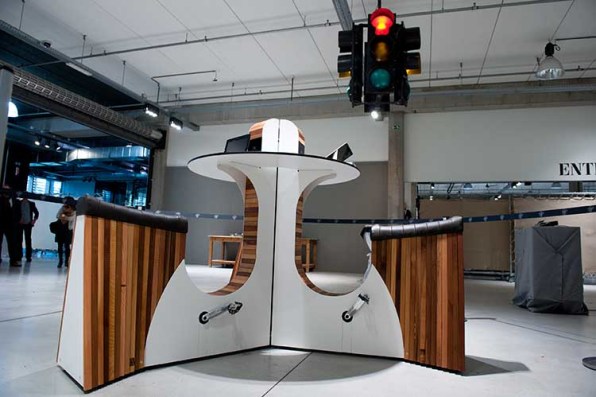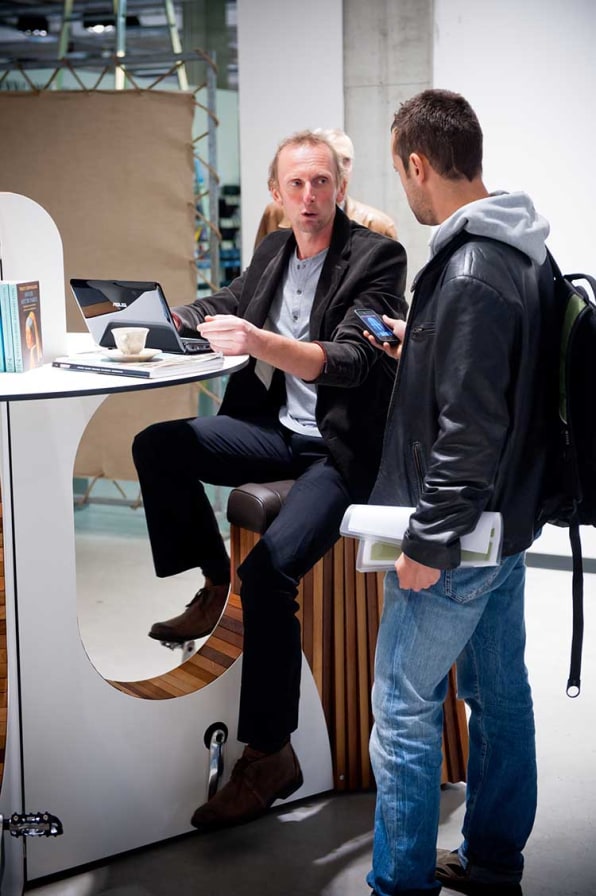At the office or airport, 30 minutes of easy pedaling on a WeBike will get you a full iPhone charge and keep you fit.

If you need to charge your phone while you’re waiting for a flight at Schiphol Airport in Amsterdam, or while sitting at the train station in Lyon, you can get a little exercise at the same time. The waiting areas are filled with WeBikes, stationary bikes that power gadgets and a Wi-Fi connection as you pedal.
The bike was the brainchild of a Flemish government minister, Patricia Ceysens, who was working long hours and couldn’t find time to work out. She hacked together a cycling desk for herself, and then realized that the bikes could also be used to generate power. As more people asked her for a version of her desk, she eventually decided to start a company, WeWatt, to produce them.
At the moment, the WeBikes are mostly used in public spaces, such as libraries and hotels, but the company hopes to bring them to more offices. “In the public domain, the focus has been on green energy,” Verhaegen says. “People like power while they’re on the move. But in the office, the focus will be more on the health side–the green energy stuff will be used more as a motivational aspect to get people started on the habit of riding at work.”
Riding a bike while working–though it might sound distracting–can actually help improve the quality of work. “People don’t believe they can do two things at the same time,” says Verhaegen. “But there are studies proving that gentle exercise while doing computer work, you’re more focused and more creative. Reading and memorizing speed is enhanced. For productivity, and creativity, it’s really good to do this.”
A new office-specific version of the bike will be released later this year with some added features, like a counter that tracks how much you’ve exercised during the workday. “At the end of the day you could see if you really lived up to this norm of health, so you can go home and not bother about the gym anymore,” Verhaegen says.
The company chose to manufacture the bikes locally, at a factory that employs people with disabilities, both because they thought it was the right thing to do and because local manufacturing has clear business advantages. “We make a lot of custom products and we have to be in the factory,” Verhaegen explains. “If it was in China, it would be so difficult.”
The factory is also able to use local materials, like scrap wood from industry and scrap leather from a sofa manufacturer. But making the bikes locally by hand doesn’t come cheap: A single bike can cost over $13,000.


Recent Comments